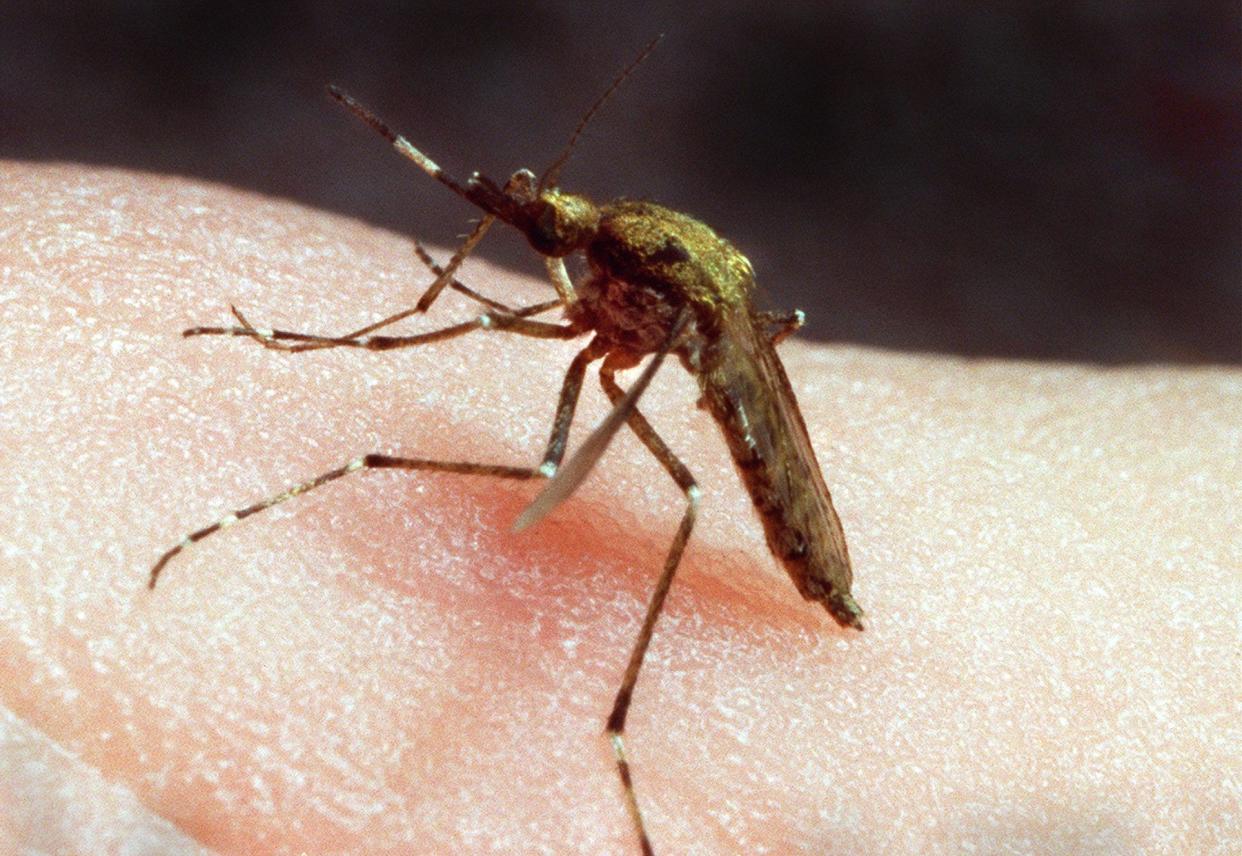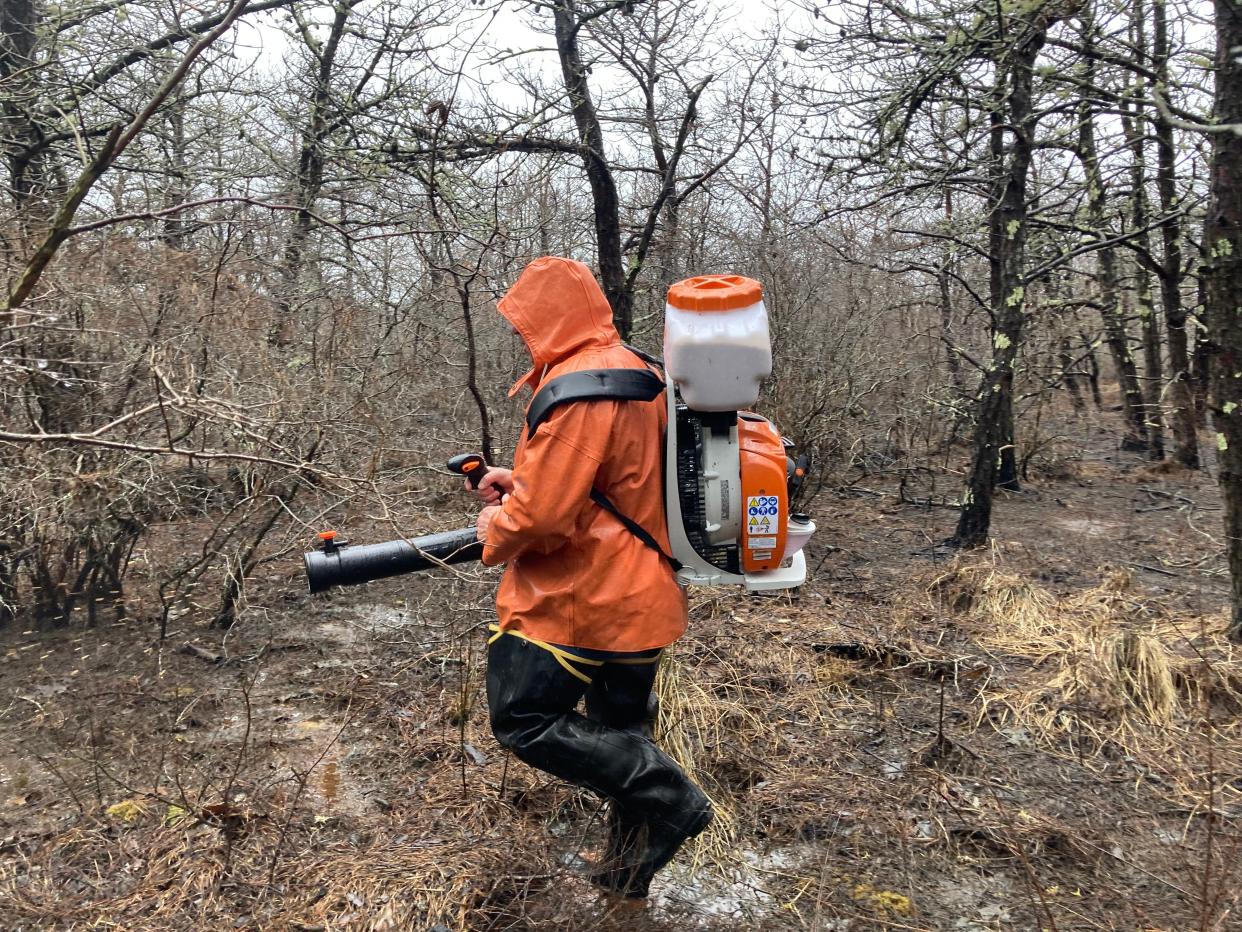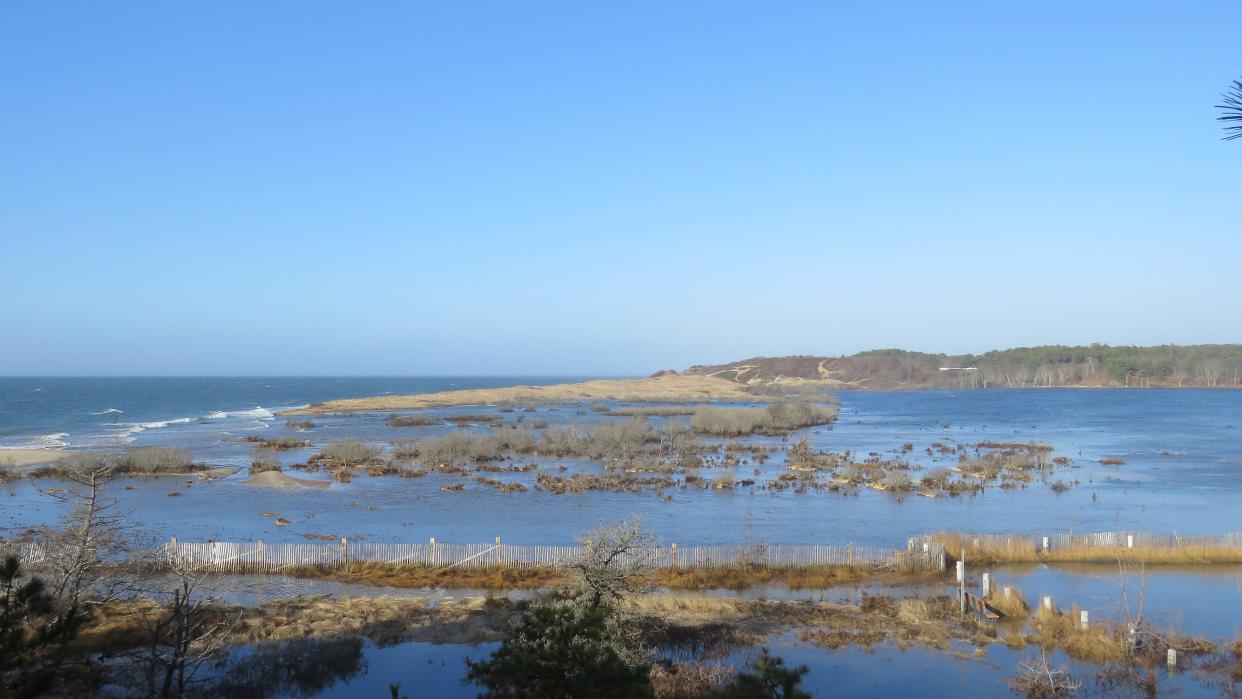The latest buzz: Cape Cod mosquito forecast and tips to avoid bites
During the colder months on Cape Cod, it's easy to pretend that mosquitoes don't exist. Or maybe, through some peculiar twist of natural fate, they all just went extinct last fall when the temperatures dropped. Wouldn't that be nice?
Well, friends, that's not the way it is. We stand on the precipice of warmer days and the mini-vampires are plotting a return, heck-bent on a blood meal that keeps their reproductive operation going. Sure, we humans seem pretty sophisticated with our smartphones and electric cars, but to a mosquito, we're just protein on a stick.
Thus, it seems a perfect time to take a look at what mosquito season might hold for the Cape, and to find out what we can do to reduce unpleasant interludes with the winged creeps around our homes.

To get the latest buzz, we spoke with Gabrielle Sakolsky, superintendent of the Cape Cod Mosquito Control Project, the organization charged with managing mosquito populations in Barnstable County.
What does the mosquito forecast look like for Cape Cod this year?
Sakolsky said predicting how bad the mosquito season might be on Cape Cod is tricky business. An important thing to keep an eye on is how much standing water there is around the Cape, whether it's freshwater or saltwater. Unusual amounts of standing water provide more room and opportunity for mosquitoes to reproduce.
"Right now, we've got a lot of mosquito habitat out there," said Sakolsky. Coastal flooding over the winter and spring has brought in saltwater that has been slow to dissipate in places, and significant spring rains have added more freshwater to the mix.
But this water is still relatively cold, not ideal for mosquito nurseries, and a stretch of dry weather could change the equation. "It's still early and it's difficult to judge how things might go," said Sakolsky.

What is the mosquito control project doing now to manage mosquito populations?
"Our crews just switched over from water management to larvicide application," said Sakolsky. In the cooler months, project crews concentrate on cleaning out waterways and culverts to keep water moving and draining, and once things heat up, they concentrate on eradicating larvae, a stage of the mosquito life cycle that takes place in water.
What is the difference between salt marsh and freshwater mosquitoes?
Salt marsh mosquitoes use saltwater or brackish water as part of their reproduction cycle, and their habits are different from freshwater mosquitoes. "Saltwater mosquitoes bite during the day and they can have a five-mile range," said Sakolsky. "They are strong fliers."
Mosquitoes that use freshwater as part of their reproduction cycle tend to stay local, said Sakolsky, and are more active at dusk and dawn.

Has the Duck Harbor overwash situation in Wellfleet raised mosquito concerns?
The Cape Cod Mosquito Control Project is paying close attention to the Duck Harbor area of Wellfleet, where repeated high tide and storm-fueled overwashes have brought significant amounts of saltwater into hard to reach interior locations.
"There is a lot of water in places that we can't physically access," said Sakolsky. "It's difficult to tell if there are mosquito eggs there."
What can I do to reduce mosquitoes around my home?
The answer is simple, but you have to stay vigilant: get rid of standing water around your home. Mosquitoes don't need much water for their eggs to prosper and start a new and irksome generation. Clean your gutters, empty water from pots, kiddie pools and containers in your yard and check tarps for sneaky puddles.
Sakolsky said boats, canoes and kayaks can also be sneaky water collectors if they aren't upturned. And since mosquitoes don't need a whole lot of time to reproduce, it's important to remove standing water after it rains.
And if mosquitoes are bugging you around your home this year, Sakolsky suggests reaching out to the Cape Cod Mosquito Control Project at (508) 775-1510. "We are here to help," she said.
Eric Williams, when not solving Curious Cape Cod mysteries, writes about a variety of ways to enjoy the Cape, the weather, wildlife and other subjects. Contact him at ewilliams@capecodonline.com. Follow him on X: @capecast.
Thanks to our subscribers, who help make this coverage possible. If you are not a subscriber, please consider supporting quality local journalism with a Cape Cod Times subscription. Here are our subscription plans.
This article originally appeared on Cape Cod Times: Mosquitoes on Cape Cod: Will 2024 be a bad year?
